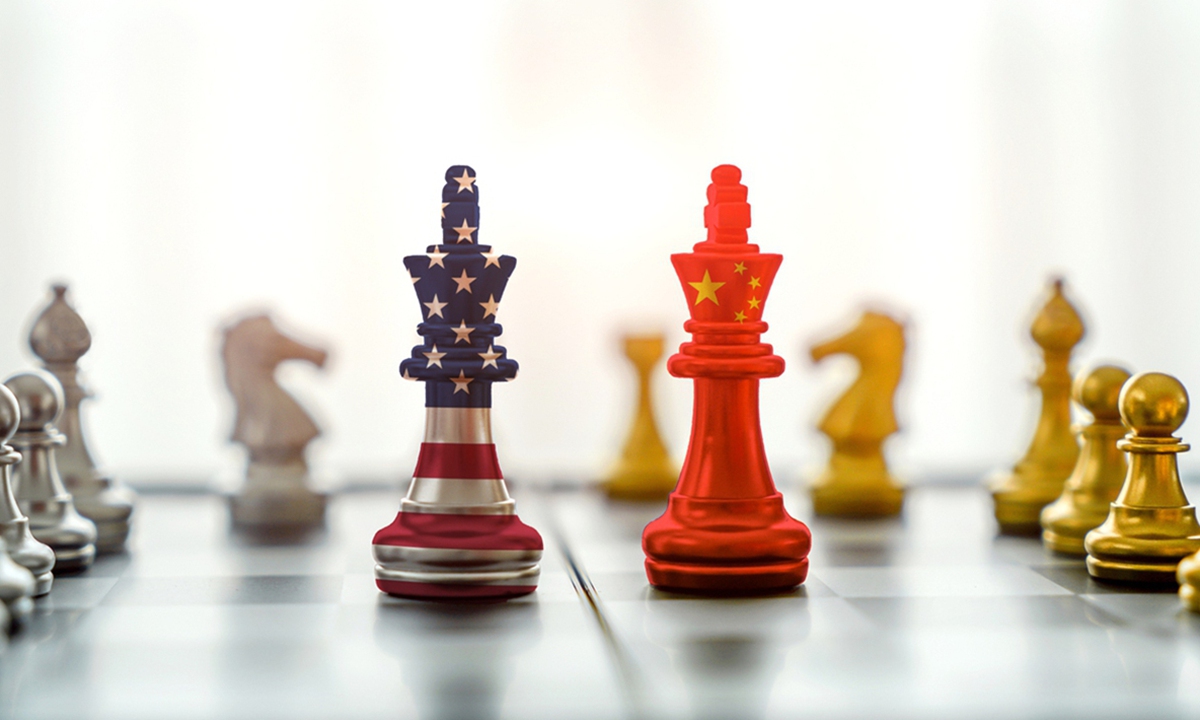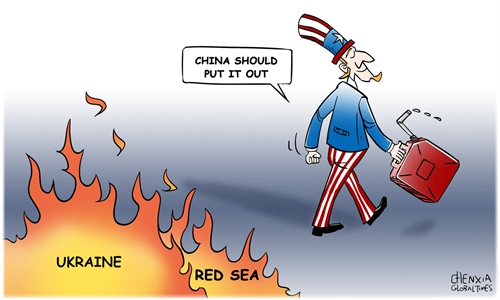US extends crackdown to Chinese biotech companies in move to drop stone on its own feet

China US
The US has extended its crackdown on Chinese companies to the new field of biotechnology, as a select committee of the US House of Representatives has drafted a bill to ban federally funded medical providers from entering into contracts with a group of Chinese biotech firms out of "national security" concerns.
Analysts said on Monday that the systemic US actions abusing the concept of "national security" hinder normal bilateral economic and trade relations. They also called on Washington to correct its mistakes in a bid to boost normal cooperation between the Chinese and US business communities and promote faster sci-tech advances to bring benefits for all human beings.
According to the draft bill posted on the select committee's website, it mainly targets Chinese biotech companies including BGI Group and its subsidiary MGI, along with WuXi Apptec and its sister company WuXi Biologics.
On Monday, BGI shares trading on the Shenzhen Stock Exchange declined by 2.51 percent to 40.45 yuan ($5.63).
WuXi Apptec shares trading on the Shanghai Stock Exchange dropped by the daily limit of 10 percent to 59.36 yuan, and its shares in Hong Kong bourse declined by 10.6 percent to HK$57.75 ($7.35).
MGI said that the draft bill's allegations against the company contain many mistakes, stressing that it strictly complies with laws and regulations where it has operations, and pays close attention to data security and privacy protection.
WuXi Biologics said on Monday that the draft bill contains a misleading description of the company's CEO Chen Zhisheng. Chen has neither worked for the Academy of Military Medical Sciences or any military-affiliated institution, nor has he received compensation from military-affiliated institutions, according to a filing with the Hong Kong Stock Exchange.
"The company's global business operations remain as usual," it said, noting that it operates "in accordance with the applicable laws and regulations of all jurisdictions" where it has business operations.
"The latest move by the US extends its crackdown on Chinese companies to other sectors from those such as semiconductors and artificial intelligence out of the same excuse of protecting 'national security,'" Li Yong, a senior research fellow at the China Association of International Trade, told the Global Times on Monday.
Gao Lingyun, an expert at the Chinese Academy of Social Sciences who closely follows China-US relations, said that the US move will disrupt normal bilateral economic and trade cooperation and raise concerns for companies that have shown a willingness to engage in cross-border cooperation.
"Some US politicians underestimated the safety awareness of US companies and investors in their cooperation with Chinese companies. American companies are unlikely to blindly transfer key technologies or information to their business partners," Gao told the Global Times on Monday.
The latest move also goes against the recent trend of increasing dialogues between China and the US in finance, military and diplomatic and other fields, according to analysts.
"It's widely hoped that the world's two largest economies could come up with more constructive plans to narrow their differences and contribute to global stability," Li said, noting that the US should correct its mistakes to meet China halfway.
Gao said that China-US economic and trade relations are unlikely to see "material" improvement in 2024 as the US will focus more on domestic issues during a presidential election year.
However, by rebuilding goodwill, there is a probability that the two sides will expand cooperation in areas that were previously prohibited, he said.



